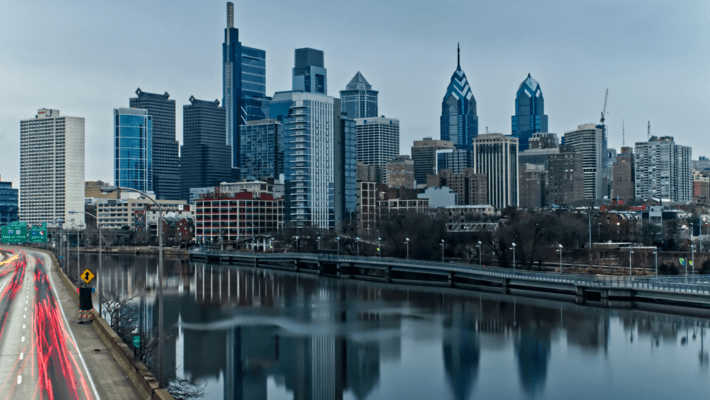
Philadelphia Bans Pre-Employment Drug Screening for Cannabis
Published on 2/23/22
The City of Brotherly Love can be a place where there's not much love to be found - just ask Flyers fans - but some good news on the horizon makes Philadelphia a much happier place to be, come 2022. The city will ban pre-employment drug testing for cannabis on January 1st, 2022, making it just the third place in the nation (after New York City and Nevada) to push forward such progressive laws. The Philadelphia law, called "Prohibition on Testing for Marijuana as a Condition for Employment" was passed by the city council and signed by the mayor in April, indicating a major change in employer attitude towards hiring. What are the details behind the new law, what does it mean for Philadelphians, and how might it affect the broader national debate on cannabis?
Penn Station
 Unsplash
UnsplashLike many other big American cities, Philadelphia launched a crackdown on marijuana use in the 20th century. Despite a long history of cannabis use in the state - founder William Penn made it legal for farmers to grow hemp back in 1683 - the enforcement of cannabis prohibition laws hit hard in Philadelphia. One major part of the city's punitive drug laws was its high minority numbers: Philly is one of a few big cities with a higher black population than white population, at about 44% and 35%, respectively.
What was true of Philadelphia, the state's largest city, was true of Pennsylvania more broadly. While recreational cannabis remains illegal throughout Pennsylvania, the state only legalized medicinal cannabis use in 2017, becoming the 24th state to do so. At first, the law stated that only non-smokable versions of medicinal cannabis were legal, while no law permitted users to grow their own crops. While the smoking standard was dropped, and a previous law that mandated persons caught with cannabis would lose their driver's license was also taken off the books, recreational marijuana remains illegal in Pennsylvania. A governor's initiative to look into decriminalization has not yielded any major policy initiatives.
Philly Special
The context of harsh state laws makes Philadelphia's move to drop cannabis drug screening all the more important. The law forbids forcing a person to submit to a cannabis drug screen as a condition for employment, an important wording because it puts pressure on the business, rather than the potential employee, to follow the law. Other cities and states with drug testing policies have made it possible for a person to refuse a drug screen but have no penalties for an employer who does not hire them based on this refusal. The Philadelphia law totally outlaws a cannabis screening altogether.
Not all job positions have to adhere to this change, however. Notably, law enforcement, commercial drivers, and positions supervising children or the elderly can still mandate drug testing and screening. Additionally, the law permits drug screens for any job position deemed capable of impacting the health and safety of the public. That's a flimsy definition - a Starbucks barista could potentially impact the health of their customers by serving them undercooked food - and it remains to be seen how strictly it will be enforced.
Good News, Everyone
 Unsplash
UnsplashEven with restrictions and fine print, the Philadelphia law is an excellent step forward in changes to drug policy. It is particularly beneficial to workers who enjoy toking up after the day ends. Marijuana famously stays in your system for a long time, weeks or even months; one common complaint among the cannabis crowd is that they could drink a fifth of whiskey or even snort a gram of cocaine and be able to pass a test the next day, but taking a single puff of mary jane dooms your job prospects for the long term. By eliminating the option of cannabis screening, nobody has to time their toking, or go to a friend for clean urine, or even go so far as to buy synthetic urine specifically made to fool drug tests.
Additionally, it is good news for employers. The current labor crisis in the United States, with millions of job openings going unfilled, represents how the balance of power has shifted from business owners to business workers. So long as stingy drug screens remain a condition of employment, many may prefer to take jobs with no such screens (such as work-at-home positions) or simply stay out of the employment market altogether. The Philadelphia law opens up many more options for hiring, making it possible for companies to get the workers they need without having to turn away potential solutions because they ate a brownie last week.
Do you have to pass any drug tests for your line of work? How have you had to overcome this boundary to get a job? Let us know in the comments below!
